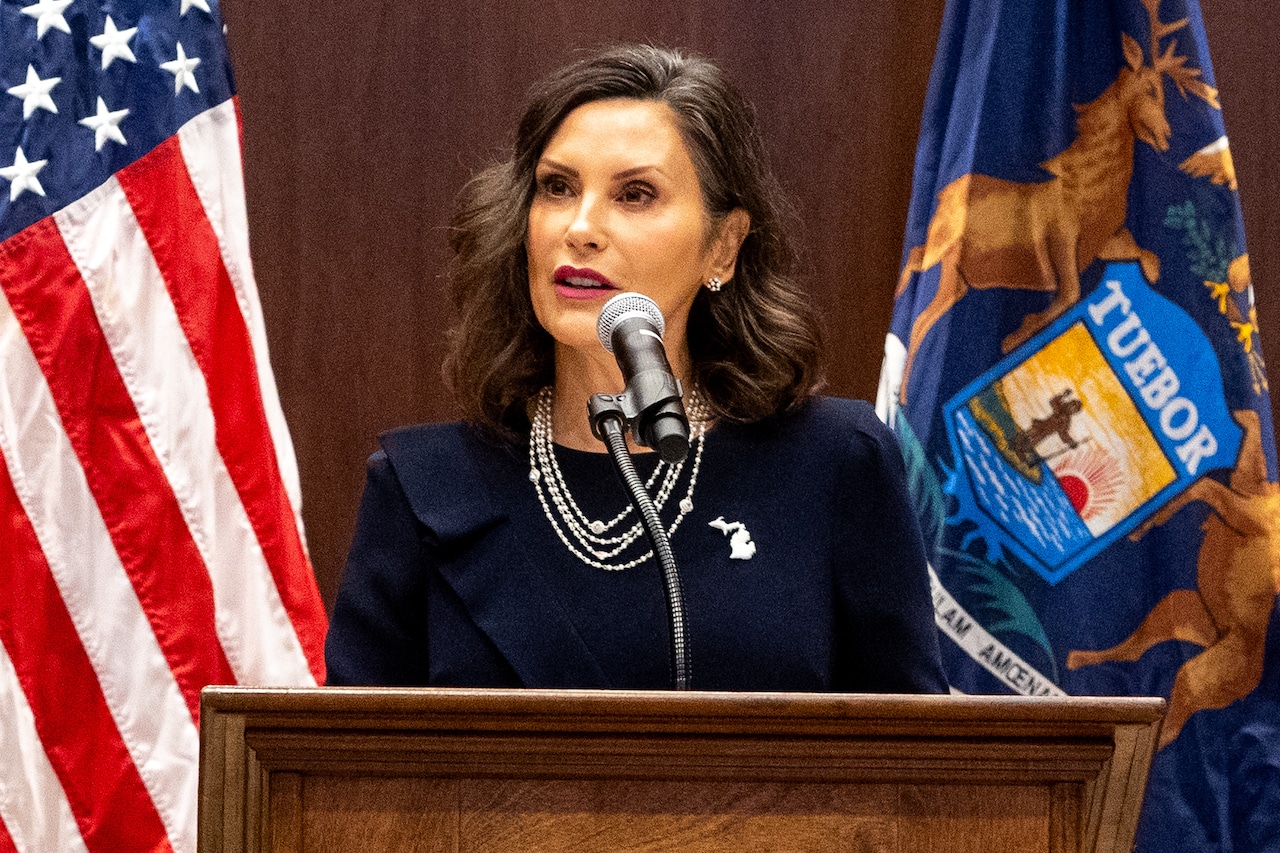
After months of delays and negotiations that pushed past the constitutional deadline, Michigan lawmakers passed a new state budget in the early hours of Friday morning.
The complex deal involves significant changes to tax policy, road funding and education spending.
After 3 a.m., the state government finalized its budget for 2025-26. The more than $75 billion budget includes $51.8 billion in general government spending and $24 billion for education, with lawmakers fulfilling a promise to increase per-pupil funding. The budget is lower than the $82.5 billion approved for FY 2025.
Lawmakers failed to pass the 2025-26 spending plan before their constitutionally mandated Oct. 1 deadline, instead passing a short-term plan while they worked out final details on the permanent plan.
The budget bills, approved by lawmakers, now head to Gov. Gretchen Whitmer’s desk for her consideration. She was part of the negotiations with House Speaker Matt Hall and Senate Majority Leader Winnie Brinks.
These are the 5 things to know from the Michigan House and Senate approval of the budget bills:
1. New 24% wholesale marijuana tax will help fund roads
A central component of the budget is a new 24% wholesale tax on marijuana, which is expected to generate approximately $420 million in annual revenue for road funding when it takes effect on Jan. 1. This tax is in addition to the existing 10% excise tax on retail sales. The move was met with strong opposition from the cannabis industry, which argues the change will give Michigan the second-highest cannabis tax rate in the nation, crippling small businesses and increasing prices for customers. Some legislators, like Sen. Jeff Irwin, contended that the tax circumvents the will of voters who legalized marijuana in 2018.
2. Business groups are protesting corporate income tax overhaul
Key business organizations, including the Detroit Regional Chamber, Michigan Chamber of Commerce and Michigan Manufacturers Association, issued a joint statement criticizing changes to the state’s corporate income tax. They claim the new policy, which separates Michigan from federal tax reforms in response to President Donald Trump’s tax act, will result in a “$2 billion tax increase over the next five years.” Business leaders warned that at a time of growing economic uncertainty, the changes will destabilize the economy and force Michigan companies to pay higher state taxes.
3. Budget aims to cut government waste
A key Republican priority reflected in the budget is an effort to cut what Rep. Ann Bollin described as “waste, fraud and abuse.” The plan includes the elimination of 2,000 unfunded “phantom employee” positions and prevents the authorization of 900 more, which is projected to save over half a billion dollars. Furthermore, the budget introduces new requirements for state departments to increase in-person work, mandating office occupancy rates of 80% or higher for some departments to end “wasteful spending on empty office space” and bring state workers back to Lansing.
4. Critics say education funding falls short
The $24 billion education budget features several key priorities, including a 4.6% increase in per-pupil funding to a new high of $10,050. It also restores $321 million for mental health and safety needs and continues the universal free school meals program. However, some advocates and lawmakers argued the increase is not enough, with Rep. Carol Glanville pointing out that the funding level remains below the national average of $17,277 and fails to keep pace with inflation. The budget also drew criticism for shifting some School Aid Fund dollars to higher education.
5. Final budget passed after months of delays
After failing to meet their constitutionally mandated Oct. 1 deadline and passing a short-term plan, lawmakers finalized the 2025-26 state budget after 3 a.m. on Friday. The more than $75 billion package, which is smaller than the previous year’s $82.5 billion budget, passed with bipartisan support in both the House and Senate. The deal, pitched by Whitmer and legislative leaders, ensures the government will be permanently funded, preventing a shutdown after months of contentious back-and-forth negotiations that resulted in two missed budget deadlines.
Generative AI was used to summarize takeaways based on an originally reported story. It was reviewed and edited by MLive.



